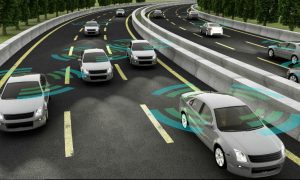 Having a car has represents freedom to travel and go where you please, soon, automakers hope to free you from having to actually drive. The idea of a future with electric powered autonomous vehicles is turning into a reality, and it is forcing automakers to rapidly advance their technologies that spread throughout the automotive industry. Manufacturers are preparing themselves for technologies that are complete game changers, and we could be within 10 years of seeing these being used on the market.
Having a car has represents freedom to travel and go where you please, soon, automakers hope to free you from having to actually drive. The idea of a future with electric powered autonomous vehicles is turning into a reality, and it is forcing automakers to rapidly advance their technologies that spread throughout the automotive industry. Manufacturers are preparing themselves for technologies that are complete game changers, and we could be within 10 years of seeing these being used on the market.
A Slow Start to a Rapidly Approaching Future
For many years, there has been a sense of caution in the industry as hurdles in some areas seemed pretty substantial when it came to autonomous vehicles. There are still some skeptics amongst the industry stakeholders, and there might be some good reason behind that. Currently, less the one-percent of the global market of vehicles are actually even electric. The problem here is, you can’t have a self-driving vehicle without the prerequisite of available electric cars.
“Electric vehicles and autonomous vehicles go hand-in-hand,” said Shashank Modi, research engineer at the Center for Automotive Research. “Electric platforms enable a lot of autonomous features because you already have those wiring harnesses in place.”
Hurdles or not, Vice President of Global Marketing and E-mobility, Automotive Sales at Freudenberg-NOK Sealing Technologies, Matt Chapman, says that the widespread adoption of electric vehicles is imminent. While the CAR Group, a company that studies the auto industry, stated that even by the time 2030 gets here, don’t expect more than four-percent of vehicles being sold to be electric. However, they do expect rapid growth after that.
“This is going to be the interesting point for me,” CAR Group CEO Carla Bailo said. “What will make a person buy a certain brand and what will be the new brand identity? The pleasure of driving and all those things we used to care about are gone. So why will you pick a product from Ford or GM or Google? It’s going to come down to what that autonomous pod offers.”
Tesla might be the most well-known electric vehicle on the market, but Ford, GM, Honda, Volvo, and other major manufacturers have also invested in electric technology. Most would agree that the Tesla is an attractive car and it already has semi-autonomous self-driving features. Teslas are also loaded with creature comforts that have earned quite the following, but they’re also not priced for the average driver. How can GM or Ford, manufacturers not known for selling high-priced vehicles, make their versions comfortable enough so people want to buy them?
There Are Lots of Possibilities
There are many different ways this could, or couldn’t, work out for auto manufactures. We could be looking at a future of cars that are very much not like cars, so would the bit auto manufacturers even have a place? They seem to hope, but there’s a real possibility of non-automotive companies joining the ranks.
Elon Musk wasn’t in the game when Tesla took shape, and while Tesla isn’t exactly selling the numbers of the Detroit three, they are pretty close to being mainstream. He was able to clear the way through innovation, and also through doubts by the other manufacturers that there’s any demand. Then as it turned out, there was a market for high-end electric vehicles.
Expect to see a lot more versions of what Musk pulled off, even if it happens on a smaller scale. The opportunity is opened now that the bigger automakers haven’t exactly figured out how to make an all-electric car that consumers are really exciting about buying.
When there’s this big of a market change, many other sectors are affected, and thus taking note. Even industries related to the automotive industry are watching closely to see what kind of technologies people come up with. One such is automotive borescope maker, SPI Borescopes, who expects that the demand for inspection tools with a different set of capabilities could be coming.
One thing is for certain, change is coming, and this is an exciting time for innovators and consumers alike. Once we cross the electric car barrier, expect to see fully autonomous vehicles taking over the market.










